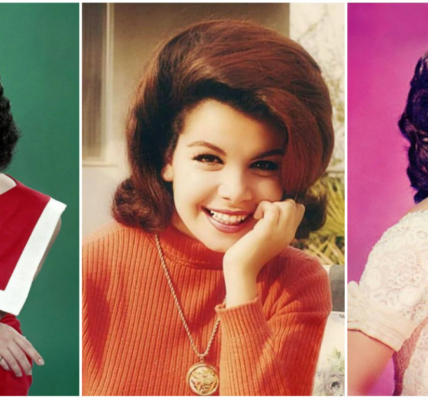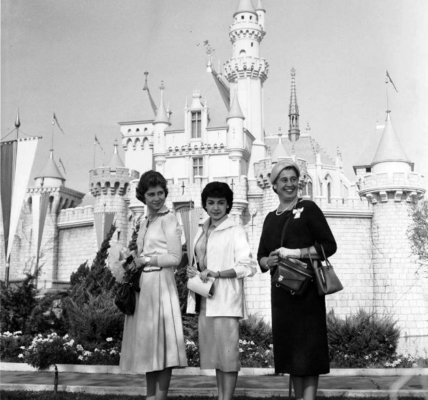Nat King Cole, born Nathaniel Adams Coles on March 17, 1919, was an extraordinary musician and one of the most influential and beloved artists in the realms of jazz and popular music. His velvety voice, impeccable phrasing, and innate musicality made him a household name and a true icon of the 20th century. In this article, we will delve into the life and career of Nat King Cole, exploring his early years, rise to fame, musical contributions, and enduring legacy as a timeless voice that continues to captivate audiences worldwide.

Early Life and Musical Roots

Nat King Cole was raised in a musical family, with his father being a Baptist minister and his mother a talented gospel singer. Growing up in the Bronzeville neighborhood of Chicago, Cole was surrounded by the rich sounds of gospel, blues, and jazz. At an early age, he showed an interest in music, learning to play the piano by ear and singing in his church choir.
By his teenage years, Cole’s musical talent was evident, and he formed a jazz trio with his brother Eddie on bass and a guitarist friend. The trio performed at local venues in Chicago, honing their skills and developing a unique style that blended jazz, swing, and blues influences.
The King Cole Trio

In 1937, the Nat King Cole trio, with Cole as the pianist and vocalist, officially formed and began performing professionally. The trio quickly gained popularity, and their signature sound of piano, guitar, and bass became a defining feature of their performances.
The King Cole Trio’s early recordings, including “Sweet Lorraine” and “Route 66,” showcased Cole’s soothing vocals and piano virtuosity. The trio’s success in Los Angeles led to an opportunity to record with Capitol Records, marking the beginning of a long and fruitful relationship between Cole and the label.
Crossover Success and Popularity
As the 1940s progressed, the King Cole Trio achieved considerable success, with their recordings climbing the charts and their performances drawing large audiences. Despite facing racial prejudice and segregation during their tours, the trio’s musical talent and Cole’s captivating voice broke down barriers, earning them a diverse and devoted fan base.
In 1943, Nat King Cole recorded “Straighten Up and Fly Right,” a song inspired by his father’s folktales. The single became a major hit and brought Cole national recognition. His popularity soared, and he became the first African American to host a national radio show, “The King Cole Trio Time.”
Pioneering Jazz and Popular Music

Nat King Cole’s unique ability to effortlessly blend jazz, swing, and popular music earned him praise from critics and audiences alike. His smooth, baritone voice, often referred to as “the velvet voice,” was perfectly suited to convey a wide range of emotions, from romance to melancholy. His vocal phrasing and impeccable sense of timing further enhanced his performances, making him a vocal innovator and a consummate entertainer.
In addition to his vocal talents, Cole’s piano skills were highly regarded. His elegant and lyrical piano playing complemented his singing and enriched the sound of the King Cole Trio.
The Crossover to Pop Music

As the 1950s approached, Nat King Cole faced a pivotal moment in his career. He made the decision to transition from being primarily a jazz artist to a pop vocalist, a move that garnered mixed reactions from fans and critics alike. This shift, however, proved to be a turning point, as it catapulted Cole to mainstream success and cemented his place as a pop culture icon.
His recordings of ballads such as “Mona Lisa,” “Unforgettable,” and “Too Young” became classics, showcasing his ability to connect with audiences on an emotional level. “Unforgettable” remains one of his most famous and enduring hits, earning him posthumous recognition when it was re-released as a virtual duet with his daughter Natalie Cole.
Television and Film Appearances

In the 1950s and 1960s, Nat King Cole expanded his presence into television and film. He became one of the first African American artists to host his own television variety show, “The Nat King Cole Show,” which aired from 1956 to 1957. Despite its short run, the show was a significant milestone in television history, showcasing Cole’s immense talent and setting the stage for future diversity in television programming.
Cole also appeared in several films, including “St. Louis Blues” (1958) and “Cat Ballou” (1965), further solidifying his reputation as a multifaceted entertainer.
Challenges and Triumphs

Throughout his career, Nat King Cole faced the challenges of racial discrimination, especially during his tours in the racially segregated South. Despite these obstacles, he maintained his dignity and continued to perform with grace and professionalism.
In the 1950s, Cole also experienced resistance from some within the African American community who criticized him for abandoning his jazz roots in favor of pop music. However, he remained unapologetic about his artistic choices, emphasizing that his goal was to bring joy to people through his music, regardless of genre.
Legacy and Enduring Influence

Nat King Cole’s legacy continues to resonate in the world of music and beyond. His contributions to jazz, pop, and American popular music are immeasurable, and his influence can be heard in the performances of countless artists who followed in his footsteps.
As one of the first African American artists to achieve crossover success, Cole broke down racial barriers in the entertainment industry and paved the way for future generations of black musicians. His ability to connect with audiences across racial and cultural divides made him a cultural ambassador, bringing people together through the universal language of music.

Nat King Cole’s musical journey is a testament to the power of talent, perseverance, and a commitment to one’s artistic vision. From his early days as a jazz pianist and vocalist to his crossover success as a pop icon, Cole’s music transcended genres and touched the hearts of millions.
His velvety voice, elegant piano playing, and heartfelt performances have left an enduring mark on jazz and popular music. As a trailblazer in the entertainment industry, he opened doors for future generations of African American artists and inspired musicians worldwide.

Nat King Cole’s legacy lives on through his timeless recordings, his contributions to American culture, and the enduring influence he continues to have on the world of music. As “The Velvet Voice of Jazz and Popular Music,” he remains an iconic figure and a true legend in the annals of music history.


